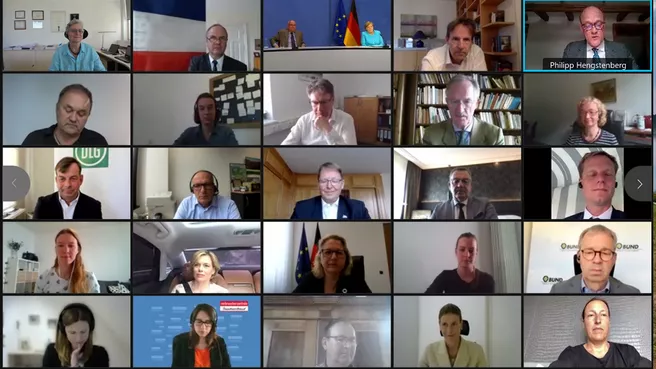The commission includes ten representatives of agricultural associations, eight representatives of industry and consumer organizations, seven people from the field of the environment and animal welfare, and six scientists from the fields of agriculture and the environment.
The aim of the joint deliberations was to combine animal welfare, biodiversity, climate and environmental protection with yield security and economic viability. In this way, the Future Commission is to make a contribution to enabling ecologically, economically and socially viable agriculture in Germany that is accepted by society in the context of rising expectations and high price awareness.
"When the Future Commission was set up a year ago, it was completely open whether the associations involved would be able to agree on the goal of a rapid and comprehensive transformation process of the entire agricultural and food system," states Frankfurt conservation professor Manfred Niekisch, "But what matters now is that the necessary steps and instruments are also developed and implemented by the interest groups involved and by policymakers."
In order for the comprehensive program to be implemented, it is estimated that citizens, as taxpayers and consumers, will have to find around five to eight billion euros more per year in the coming years, with the amount gradually decreasing as the planned transformation of EU direct payments into public service fees takes place. Half of this funding will be needed for improved animal welfare, the other half for improved protection of biodiversity, nature and climate. That's initially up to 100 euros a year for each citizen. "For most people, animal welfare and intact nature are also worth this sum," says Prof. Achim Spiller of the University of Göttingen. Low-income households, however, will have to be compensated for this, for example by an increase in Hartz IV rates or direct transfers.
After tough negotiations, the agricultural negotiating side finally agreed that the classic EU subsidies for agriculture, the so-called direct payments paid per hectare, no longer have a future and must be completely restructured within the next two periods of EU agricultural policy. Direct payments should be replaced by economically attractive payments for environmental and animal welfare services provided by agriculture. This recommendation of the ZKL is groundbreaking in the view of the scientists, because it enables new business models for farmers and can secure them economically.
According to the scientists, the Future Commission was a successful experiment and proves the value of such dialogue processes with extensive stakeholder participation. "For the understanding of a common path for the implementation of more sustainability, such dialog processes can make an important contribution at all political levels, from the Bundestag to local conflicts, for example, in the case of barn construction or changes to the landscape caused by greenhouses or hail nets," assessed TUM Professor Vera Bitsch.
More information:
- The federal government: Press article
- Final Report of the Commission on the Future of Agriculture
- Information on curriculum vitae and research projects of Prof. Dr. Dr. h.c. Vera Bitsch
Editing:
Susanne Neumann
TUM School of Life Sciences
Press and Public relations
Scientific contact:
Prof. Dr. Vera Bitsch
Chair of Economics of Horticulture and Landscaping
Phone: +49 8161 71 2532
bitsch(at)tum.de

